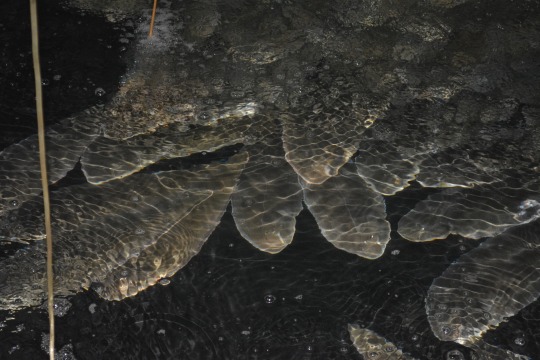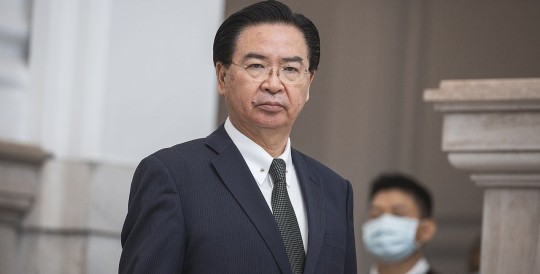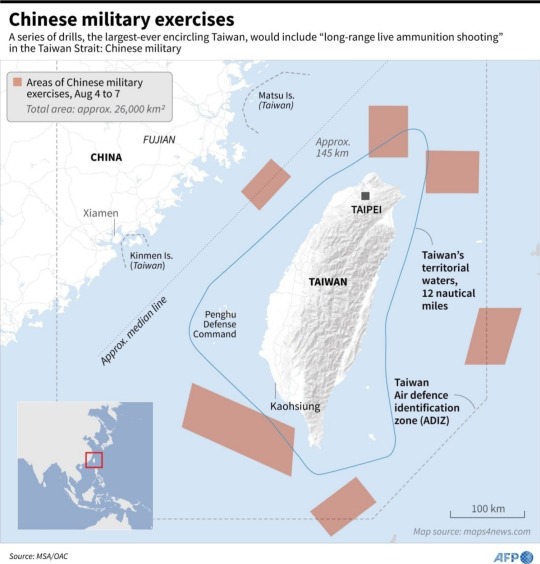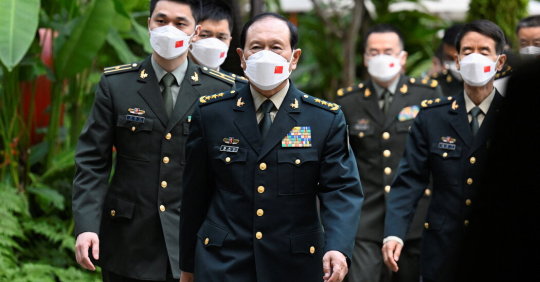#taiwan china tensions
Text

Flounder farm from China
#fish farming#how us and china could end up at war by 2025 as tensions rage after spy balloon shot down & fury over taiwan#summer 2015
6 notes
·
View notes
Text
hot'n'sour
#china#noodle#noodles#the ramen rater#theramenrater#soup#food#instant noodles#instant#instantnoodles#ramen#aph china#ancient china#chinaart#prediksi togel china#how us and china could end up at war by 2025 as tensions rage after spy balloon shot down & fury over taiwan#vietnam#iran#chinese#beijing#russian
1 note
·
View note
Link
Biden Cites Economic Factors as Possible Deterrent to China's Taiwan Invasion President Biden addresses concerns over China's potential military action in Taiwan and highlights the role of China's economic challenges in deterring aggressive moves. President Biden's Assessment Economic Pressures and Military Actions President Biden notes China's economic slowdown and discusses its potential influence on their military decisions concerning Taiwan. China-Taiwan Tensions Complex Background A brief overview of the long-standing tensions between China and Taiwan, including Taiwan's self-governance and China's territorial claims. Economic Struggles and Military Ambitions Impact of Economic Challenges Examining how China's economic difficulties, such as high debt and a real estate crisis, may affect its military goals in the region. Controversy Surrounding Biden's Remarks Debates Among Experts [caption id="attachment_54360" align="aligncenter" width="900"] Joe Biden Cites Economic Challenges As Deterrent To China’s Taiwan Invasion Plans[/caption] Exploring differing opinions among experts on whether a weakened economy might lead China to adopt a more assertive stance. Diplomacy and Regional Stability Ongoing Importance Highlighting the significance of diplomatic efforts and international cooperation in maintaining stability in the Taiwan Strait region. FAQs about Joe Biden Cites Economic Challenges As Deterrent To China’s Taiwan Invasion Plans Q1: What did President Biden mention about China's economic challenges during the press conference? A1: President Biden highlighted China's economic difficulties, suggesting they might deter risky military actions like an invasion of Taiwan. Q2: Why is Taiwan a point of contention between the United States and China? A2: Taiwan is self-governed but claimed by China as part of its territory, leading to ongoing tensions. Q3: What specific economic challenges is China facing? A3: China is grappling with high debt levels, a real estate crisis, and slowing exports, among other economic difficulties. Q4: How do experts view the connection between China's weakened economy and its military ambitions? A4: There are differing opinions among experts, with some suggesting a weakened economy might lead to a more assertive stance by China. Q5: What is the role of diplomacy in the Taiwan Strait situation? A5: Diplomatic efforts and international cooperation play a crucial role in maintaining regional stability and resolving tensions in the area.
#China#diplomatic_efforts#economic_challenges#Joe_Biden#military_invasion#regional_stability.#Taiwan#tensions
0 notes
Video
youtube
China To Join Indonesia's Multilateral Naval Drills Despite Rising Tensi...
#youtube#China To Join Indonesia's Multilateral Naval Drills Despite Rising Tension. china news korea asia japan usa taiwan drills China will send w
1 note
·
View note
Text
China Taiwan War: अंजाम भुगतना पड़ेगा... ताइवान को लेकर आगबबूला हुआ चीन, अब इस देश को खुलेआम धमकाया
China Taiwan War: अंजाम भुगतना पड़ेगा… ताइवान को लेकर आगबबूला हुआ चीन, अब इस देश को खुलेआम धमकाया
हाइलाइट्स
चीन ने चेक रिपब्लिक प्रतिनिधिमंडल के ताइवान दौरे पर तीखी प्रतिक्रिया दी
चेक नेताओं के दौरे को चीनी संप्रभुता और क्षेत्रीय अखंडता का उल्लंघन बताया
लिथुआनिया से ताइवान मुद्दे पर पहले ही रिश्ता तोड़ चुका है चीन
बीजिंग: चीन ने ताइवान के साथ दोस्ती बढ़ाने को लेकर अब एक और यूरोपीय देश चेक रिपब्लिक को धमकी दी है। चीन ने कहा है कि अगर उसने ताइवान के साथ संबंधों को मजबूत किया तो इसका अंजाम…

View On WordPress
#China Czech Republic News#China Czech Republic Tension#china News#China Taiwan News#China Taiwan War#Czech Republic Delegation to Taiwan#Taiwan Czech Republic News#Taiwan Czech Republic Relations
0 notes
Text
Pelosi meets Japan's PM amid tensions with China, pledges cooperation to maintain peace in Taiwan Gulf
Pelosi meets Japan’s PM amid tensions with China, pledges cooperation to maintain peace in Taiwan Gulf
Highlights
Nancy Pelosi met with Japan’s prime minister amid tensions with China
Taiwan pledges cooperation to maintain peace in the Gulf
China’s largest ever military exercise in the Gulf of Taiwan
Tokyo, Japan and the US agreed on Friday to work together to maintain peace in the increasingly tense Taiwan Strait amid China’s major military exercises. At least five missiles fired from China are…
View On WordPress
0 notes
Text
No appreciable business disruptions over China tensions
No appreciable business disruptions over China tensions
Most member companies of the American Chambers of Commerce in Taiwan said there has been no significant disruption to business despite escalating tensions between China and Taiwan in recent weeks, according to a survey.
China started conducting military exercises around Taiwan in recent weeks, but 77% of respondents said they have not faced “appreciable disruption” to their business, said Andrew…
View On WordPress
#appreciable#Asia Economy#business#business news#China#disruptions#Foreign policy#International relations#Nancy Pelosi#Politics#Taiwan#Tensions#United States
0 notes
Text
Will China Invade Taiwan? The Looming Danger Of World War 3 Explained
While the world is engulfed in the Ukraine-Russia war, global inflation, food shortage, and scorching heat, China is preparing to conclude its long-simmering plan to invade Taiwan.
Here’s an in-depth report:
Will China Invade Taiwan: An Overview
China’s goals for Taiwan are well known. Tensions between the two nations have been stoked for years by opposing perspectives over the sovereignty of the little island country. And now, they are reaching boiling point.
Beijing sees Taiwan as a breakaway province, even though it has never been a part of China. Moreover, the so-called reunification with Taiwan has been a top priority for the Chinese president, Xi Jinping, ever since he came to office. And he hasn’t ruled out using force to do this.
Taiwan’s military, which has 169,000 active soldiers, is outnumbered by its superpower neighbors’ million-strong army by over a 20 to 1 margin. And, with the looming danger of China’s invasion of Taiwan; expert fear, the world is inching closer to a World War situation.
Why does Taiwan Matters to the World?
If China were to Invade Taiwan, two nuclear power heads, China and the US, could warhead to head into what could escalate into world war three.
But why is Taiwan so important for the world, especially for the US?
South China Sea Dispute
The South China Sea is one of the most important regions for global trade because over 30% of the world’s shipping passes through the passage, which amounts to $3.37 Trillion in trade per year. The sea also homes 11 billion barrels of untapped crude oil and 190 Trillion cubic feet of natural gas.
And most important of all, the country controlling this region will have significant military benefits.
For years, China has been keenly taking control of the region. To an extent, where the Sino military has created an artificial island to claim the South China Sea as its own.
So, if China succeeds in invading, it will have the upper hand in the second most important region in the world, handing China significant military dominance in the area.
US’s Promise in Question
The US does not recognize Taiwan as an officially different state. But, the Taiwan Relations Act 1979 does require the US to aid Taiwan in self-defect. President Bidden also testified that in case of Chinese assault, Washington would protect Tawain with force.
Though Biden has framed US support for Taiwan in terms of ideals, such as the defense of democracy against despotism, many analysts point out that Washington also views the island as strategically significant.
Furthermore, if China invades Taiwan, the US will be forced to reciprocate to honor its promise. Failing to do so would put Washington in question even with its strongest allies, including NATO.
Taiwan: The Semiconductor Hots top
From laptops to game consoles and automobiles, most of our electronic equipment is powered by semiconductors chips manufactured in Taiwan.
Taiwan alone has 63% of the market share in the global semiconductor industry. By one measure, TSMC (Taiwan semiconductor manufacturing company) holds over 54%. It’s a vast industry worth over 100 billion USD in 2021.
Therefore, Taiwan is the world’s semiconductor hotspot that powers significant tech companies, including Apple, Intel, and Nvidia. And, with China in control of Taiwan, it will directly take over one of the world’s most vital industries.
Can China Takeover Taiwan By Force?
The People’s Liberation Army has significantly improved under President Xi Jinping to an extent where invading Taiwan is possible.
However, one key determiner is how close PLA is to mastering the skills required to deploy thousands of troops to Taiwan by air or sea, take over the island and push over to size crucial areas like railways, ports, and communication.
However, even if LPA- the biggest military force in the world-wanted to annex Taiwan, doing so would be fraught with danger.
While subjected to naval and aircraft bombardment, the Sino military will have to cross Taiwan bay with over 100,000 soldiers. And, even if the military were to reach Taiwan’s coast; landing aircraft to unload armored personnel carriers, artilleries, and tanks would be a challenge because of the island’s rocky shoreline.
The invasion will further provoke large-scale combat between the US and China. China Taiwan tensions
Taiwan Brace for China’s Invasion
With China’s aggressive military power demonstration near Taiwanese borders and Nancy Pelosi’s visit, the Taiwanese authorities are preparing for the invasion. Now, allies are pumping in more military aid while the neighbors are arming with new fighter jets.
According to Chinese officials, live-fire sea and air exercises are being conducted in six different regions around Taiwan. The drill includes over 100 planes, including ten warships, bombers, and fighter jets.
However, Taiwan is also setting the stage for strong retaliation.
Last week, Taiwan conducted its largest ever military drills that stimulated the repulsion of an invading force. The city across Tawin shut down for thirty minutes for nationwide military exercises.
And now, with China set to orchestrate fresh military drills near Taiwan; the island nations say, “Our military will be ready but will not ask for war.“
0 notes
Text
U.S. WATCHES ANXIOUSLY AS CHINA THREATENS MISSILE LAUNCHES NEAR TAIWAN
“The Chinese are looking deliberately to do something that they’ve never done before,” one expert said.Washington is on edge as China readies a series of provocative military drills set to kick off on Thursday in response to House Speaker Nancy Pelosi’s visit to Taiwan. Beijing has threatened incursions into the island’s territory, and for the first time, conventional missile launches over the…

View On WordPress
#China Surround Taiwan#China-U.S Tension#Chinese Military#PLA#Taiwan navy personnel#Taiwan-China Tension
0 notes
Text
ताइवान दौरे के विरोध में चीन ने दागी मिसाइलें, 5 जापान के क्षेत्र में भी गिरी
ताइवान दौरे के विरोध में चीन ने दागी मिसाइलें, 5 जापान के क्षेत्र में भी गिरी
Nancy Pelosi Taiwan Visit: अमेरिका की हाउस स्पीकर नैंसी पेलोसी (Nancy Pelosi) के एशिया दौरे के बीच चीन (China) ने सैन्य अभ्यास के दौरान ताइवान के क्षेत्र में बैलिस्टिक मिसाइल (Ballistic Missiles) दागी हैं. जापान (Japan) ने इस कार्रवाई का विरोध करते हुए ये दावा किया कि ये मिसाइलें जापान के विशेष आर्थिक क्षेत्र में गिरी हैं. इसी बीच यूएस हाउस स्पीकर नैंसी पेलोसी भी ताइवान से टोक्यो (Tokyo) पहुंच गई…
View On WordPress
#Ballistic Missiles#china#China Taiwan Tension#Japan#Nancy Pelosi#Nancy Pelosi News#Nancy Pelosi Taiwan Visit#Taiwan#US#अमेरिका#चीन#चीन ताइवान तनाव#जापान#ताइवान#नैंसी पेलोसी#नैंसी पेलोसी ताइवान यात्रा#नैंसी पेलोसी समाचार#बैलिस्टिक मिसाइल
0 notes
Text
Beijing promises exercises with live ammunition. Nearly 30 Chinese warplanes detected near Taiwan
Beijing promises exercises with live ammunition. Nearly 30 Chinese warplanes detected near Taiwan
China to continue holding military exercises across the Taiwan Strait
© AFP
Author: TSF/Lusa
Taiwanese authorities denounced the entry on Wednesday of 27 Chinese military aircraft into Taiwan’s air defense space, after a visit to the island by the leader of the US Congress, Nancy Pelosi, despite threats from Beijing.
“[Os 27 aviões da Força Aérea da China] entered, today, August 03, 2022, in…
View On WordPress
0 notes
Text
Do people understand how huge this is? The Chinese actually threatened to shoot down Pelosi’s plane!
#News of the World#China#Taiwan#Pelosi#Foreign Policy#Congress#Bipartisan#global tensions#International incident
0 notes
Text
U.S. Warns China on Taiwan as Defense Officials Meet to Cool Tensions
U.S. Warns China on Taiwan as Defense Officials Meet to Cool Tensions
Singapore — Secretary of Defense Lloyd J. Austin III Following a meeting with Chinese defense minister General Wei Fenghe, who focused on preventing regional tensions from developing into a crisis, he said he was “provocative and unstable” near the conflict island in Taiwan. I warned China on Saturday for what I called.
Taiwan is an autonomous island that Beijing claims to be its own country, and…

View On WordPress
0 notes
Text
A Rundown of Henry Kissinger's Life
“Once you’ve been to Cambodia, you’ll never stop wanting to beat Henry Kissinger to death with your bare hands. You will never again be able to open a newspaper and read about that treacherous, prevaricating, murderous scumbag sitting down for a nice chat with Charlie Rose or attending some black-tie affair for a new glossy magazine without choking. Witness what Henry did in Cambodia – the fruits of his genius for statesmanship – and you will never understand why he’s not sitting in the dock at The Hague next to Milošević. While Henry continues to nibble nori rolls and remaki at A-list parties, Cambodia, the neutral nation he secretly and illegally bombed, invaded, undermined, and then threw to the dogs, is still trying to raise itself up on its one remaining leg.”
--Anthony Bourdain (2018)
It's difficult to be precise, but all told Henry Kissinger killed hundreds of thousands of civilians in pursuit of American business interests.
EARLY LIFE
Henry Kissinger was born in 1923 as Heinz Kissinger in Fürth, Bavaria, Germany, to a German-Jewish family. Throughout his youth, he was relentlessly and violently harassed and discriminated against by members of the Hitler Youth and authorities. At the age of 15, Kissinger and his family fled Nazi Germany, settling in New York City. He finished high school at George Washington High School in NYC and began studying accounting at the City College of New York, but his undergraduate studies were interrupted in 1943 when he was drafted into the US army.
In the army, fluent German speakers were in short supply, so Kissinger was quickly assigned to military intelligence. During the American invasion of Germany, he worked to set up civilian administration of conquered cities and tracked down Gestapo officers as a Special Agent of the Counter Intelligence Corps. He received the Bronze Star Medal
After his time in the army, Kissinger returned to his studies. He graduated summa cum laude in political science from Harvard College, as well as his Masters and PhD. He taught at Harvard, and his studies focused on international 'legitimacy', when an international order is widely accepted by international leaders, without regard to public opinion or morality.
POLITICS
Beginning in the 1950s, Kissinger began to be more active on the political stage. He was a consultant for the National Security Council and a study director for the Council of Foreign Relations. He notably was against Eisenhower's massive retaliation nuclear doctrine, where the United States would respond to a nuclear attack with a much, much greater nuclear attack. Instead, Kissinger advocated the use of tactical nuclear weapons on a regular basis in more wars.
In the 1960s, Kissinger began working with Republicans running for office as an advisor in foreign affairs. He contributed to the Nixon campaign, and when Nixon took office in 1969, Kissinger was appointed as National Security Advisor, and later Secretary of State. As a diplomat, Kissinger heavily used Realpolitik, the in-fashion Cold War approach focusing on pragmatism and realistic outcomes rather than ideological or moral purity. In international politics, it largely has to do with obtaining and maintaining power on the world stage.
Kissinger focused on relaxing US tensions with the USSR and China, leading an American foreign policy that supported Taiwan on the face but in the shadows removed all support for Taiwan and essentially waited for it to fall apart.
In 1974, he directed the National Security Study Memorandum 200: Implications of Worldwide Population Growth for U.S. Security and Overseas Interests (NSSM200), sometimes called the "Kissinger Report" the official United States policy for many years, though it remained classified until the 1990s. The Kissinger Report advocated for population control in undeveloped nations to ensure easy resource extraction and protect American business interests abroad. Projects were designed to reduce fertility while keeping up the appearance of improving quality of life--the plan specifically attempted to avoid an appearance of "economic or racial imperialism". Birth rate was particularly noted due to concerns about an adequate global food supply and because young people more readily fight back against corruption and imperialism. The Report also brought up increasing abortion rates as a method of obtaining this goal.
In 1975, policies based on the Report went into affect. The National Security Council would recommend withholding food and using military force to prevent population growth, prioritizing aid for small families, and even paying people to get sterilized. Thirteen countries were named as particularly problematic to US interests. Of note, Nigeria lost development and the United States took control of Nigerian resources, and the United States Agency for International Development (USAID) was responsible for some of the 300,000 forced sterilizations in Peru--largely impoverished or indigenous women--during the Fujimori administration. The Fujimori government has been accused of crimes against humanity by the International Criminal Court for these abuses, and today the Peruvian economy suffers due to the low population resulting from these sterilizations.
ACTIONS IN SOUTHEAST ASIA
The Vietnam War had started back in 1955. Kissinger had originally supported it, but as time dragged on began to view it as harming American prestige. Kissinger leaked information about peace talks to get into power at Nixon's side, and then failed to end the war in 1972, leading to the Christmas bombings. A very similar agreement was signed the next month, leading to a ceasefire (that would collapse) and the withdrawal of American troops--bitterly seen as a betrayal by South Vietnam. When Kissinger and Vietnamese diplomat Lê Đức Thọ were jointly awarded the Nobel Peace Prize for this, Thọ declined to accept it and two members of the Nobel Committee left it in protest.
It was in the middle of the Vietnam War, and during the Cambodian Civil War, that Operation Menu and Operational Freedom Deal went into play. From March 1969 to May 1970, the United States Strategic Air Command carried out a series of first tactical and then carpet bombings in eastern Cambodia. Then, from May 1970 to August 1973, the United States provided close air support and widespread bombing. Part of a 'secret' war to support the Kingdom of Cambodia/Khmer Republic against communist rebels, it ultimately failed and the communists would take power in 1975.
In the Bangladesh Liberation War in 1971, Nixon and Kissinger supported the Pakistani president Yahya Khan. It was in this that the strongest dissent in the history of the U.S. Foreign Service, the Blood Telegram (named after sender Archer Blood), was sent. It reports the US was about to lose, describes systemic abuses, and uses the word 'genocide' to describe the actions by US-supported Pakistan. It said the US government was morally bankrupt. Blood was recalled early from Bangladesh, and US interests were lost when Bangladeshi Independence was secured within the year.
MIDDLE EASTERN POLICY
Kissinger was originally excluded from any policy-making on Israel, as part of Nixon's orders to exclude all Jewish-Americans from such work. Still, in 1973, when Kissinger became Secretary of State, he was included in all US Middle Eastern policy. This means he was largely responsible for the handling of the Yom Kippur War--this handling included not noticing precipitating factors leading up to it (he was so engrossed in Paris peace talks he didn't notice the Egyptian President Sadat ready to move on Sinai), delaying telling Nixon about and stalled negotiating a ceasefire, hoping Israel would push across and fully obtain the Suez Canal.
Kissinger's diplomacy included giving equipment to Israel, but not as much as he'd promised, and selling weapons to Saudi Arabia at the same time, in exchange for access to Saudi Arabian oil. By largely handling to event and not involving France or the United Kingdom, and by minimizing the power of the Soviet Union, Kissinger took large steps in giving US power over much of the Middle East.
It should be noted that this was done purely to protect US interests rather than any form of Jewish security. When questioned about the persecution of Soviet Jews at the same time, Kissinger said
"The emigration of Jews from the Soviet Union is not an objective of American foreign policy, and if they put Jews into gas chambers in the Soviet Union, it is not an American concern. Maybe a humanitarian concern."
-Henry Kissinger (1973)
Also in the region., Kissinger supported Iran against Iraq.
TURKISH INVASION OF CYPRUS
In 1974, the Greek military regime and Turkiye invaded the island of Cyprus. The military regime had been supported by Kissinger, and anti-Kissinger sentiment was strong among young people. Cyprus is now an independent island country, though its northeast portion is de facto separate, making up the self-declared Turkish Republic of Northern Cyprus. Kissinger considers his own handling of the Cyprus Issue unfavorably.
LATIN AMERICA
With Kissinger's influence, the United States maintained relations with non-left-wing governments regardless of commitment to democracy. It was with Kissinger's input that the CIA encouraged a military coup against Chilean president-elect Salvador Allende due to his socialist ideals.
Operation Condor, a US-backed program of political repression by right-wing dictatorships of southern South America, was also Kissinger's work. It included assassinations, the Dirty War in Argentina, and supporting Brazil's nuclear weapons program because it would benefit the U.S. private nuclear industry.
SOME OTHER STUFF
Kissinger's policy on post-WWII decolonization was mixed, based on what would benefit the U.S. He helped transition Rhodesia (now Zimbabwe) away from White minority rule, expressed moderate support for the Portuguese Colonial Empire, and helped Indonesia occupy East Timor.
After Watergate forced Nixon to resign, Kissinger stayed on under President Ford but left office when Democrat Jimmy Carter came into power. He was offered an endowed chair at Columbia University, which was canceled due to student opposition, but was appointed to Georgetown University instead. He ran a consulting firm, supported the Chinese government in the Tiananmen Square massacre, and served on the 2000 Commission of the International Olympic Committee. He was supposed to help President Bush respond to the 9/11 attacks but stepped down because he refused to reveal if he had a business conflict of interest.
In 2010, he took a strong stance urging world governments to destroy all nuclear weapons. In the 2014 Ukrainian crisis, he said that Crimea should remain under Ukrainian sovereignty, but in the 2022 Russian invasion of Ukraine said that Crimea and Donbas should be given to Russia.
Kissinger was a board member of Theranos, Elizabeth Holmes' biotech scam.
In response to the 2023 Hamas attack on Israel, and seeing pro-Palestinian protestors in Germany, Kissinger called Muslim immigration into Germany "a grave mistake".
DEATH
Kissinger died peacefully in his home in Connecticut on November 29th, 2023,
#history#destiel#henry kissinger#imperialism#anti imperialism#if any of you use this as an excuse to be antisemitic or prolife im coming for all your bones
222 notes
·
View notes